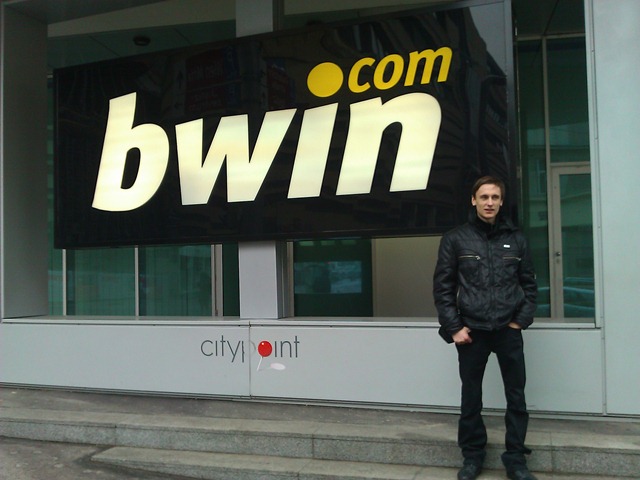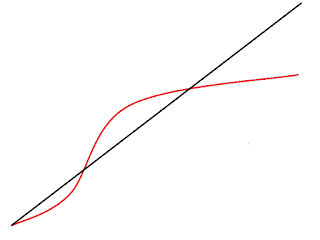September 22, 2019 Book Reviews, Career, Opinion, Personal 3 comments
It’s all in your head: thoughts on 15 books
Metacognition. Seeing with your tongue. Implanting fabricated memories. Superintelligence. Immortality. Dataism as religion. Lobsters and your social status. Number anchoring when negotiating your salary. Amoral deception. Illusion of choice and of free will.
Are you intrigued? You should be. I definitely was impressed by some of the new knowledge gained and ideas covered in few books read recently. This post is a set of short one-four paragraph book reviews. Some books I do recommend and some I don’t though still mention them for my personal record and for entertainment reasons and also to prevent you from reading them. Since this is covering 15 books the post is going to be relatively long. Please bear with me.
Learn better
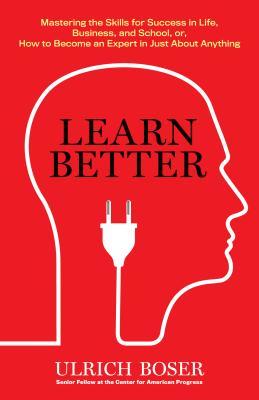
Key idea: Learning is a skill and you can teach yourself to be better in it.
The author advises 6 steps: value – make learning more valuable by associating it to things you appreciate, target – set learning goals, develop – practice with audience or teach, extend – constantly improve understanding of existing knowledge, relate – create relationship between concepts, and rethink – don’t get overconfident and dive deep to understand ever better.
Quote: “The act of writing is a good example of metacognition because when we think about composing sentences and paragraphs, we’re often asking ourselves crucial metacognitive questions: Who will be reading this? Will they understand me? What things do I need to explain? This is why writing is often such an effective way to organize one’s thoughts. It forces us to evaluate our arguments and think about ideas.”
At times I regret how I was studying at university – I could have been much more efficient had I known that the key is to retrieve the knowledge instead of repeatedly consuming information. My interpretation is that the brain works in such a way that when we consume information it is transmitted towards its storage destination igniting complex neural paths in one direction but to retrieve the information the path has to be ignited in the opposite direction as well or otherwise we risk “forgetting”. This brings us to the next book:
The Brain: The Story of You

The book if full of all kinds of absolutely fascinating facts about inner workings of our brain. Sometimes even slightly creepy. For instance, read this quote below:
Quote: “So not only was it possible to implant false new memories in the brain, but people embraced and embellished them, unknowingly weaving fantasy into the fabric of their identity.”
Disregard if you believe someone can implant fake memories, this book is totally absorbing and exciting read if you are new to neuroscience and psychology and want good introduction. You would get to learn about extreme adaptive capabilities of the brain and other things. As I understand it, effectively the brain is a powerful interpretation machine taking electrical signals as input (from your ears, eyes, tongue, nostrils, skin) and translating them into flow of bioelectric processing that could cause certain chain reactions resulting in physical actions and/or secretion of chemical substances (hormones) by glands effectively making us alive. Since the brain is such a powerful interpreting machine we can work on providing it with other inputs and teaching it to handle those as well. In this way a guy has learned to see with his tongue and even climb using Brainport. This is a real product for people with disabilities consisting of a camera on outside, a pad put on tongue towards which an electric picture is projected. To extend on this, there is nothing that could prevent us from extending capacity of human body.
Or, maybe, instead we can build artificial general- or super- intelligence to help us out?
Life 3.0: Being Human in the Age of Artificial Intelligence

Let’s do versions first: 1.0 – biological when hardware and software evolved, 2.0 – cultural when software is designed and hardware is how it was, 3.0 – technological when both hardware and software are designed. Here “hardware” is human body and “software” is our cognitive abilities to process information.
This book reads almost as science fiction and somehow involuntarily reminds me of movies where robots and humans exist together. The book brings questions of how the society will exist when Artificial General Intelligence becomes a reality. Would we no longer need to work? Would machines try to exterminate us as in Terminator movies or harvest for energy as in The Matrix? I liked be book for bringing all of these interesting questions, entertaining on all kinds of possibilities, and exploring potential solutions to new problems we would eventually have to face and at same time not actually being a fiction.
Can we become super-humans or even gods without the help of AI? Let’s look what the next book says:
Homo Deus: A Brief History of Tomorrow

The key idea is that we eventually become god-like and gain ability to control life and environment and Homo Sapiens goes extinct. We might eventually lose our carbon-based existence and just become information.
I really like the structure of this book taking your slowly from understanding how much progress humanity has made by overcoming such horrible things as plagues, famines, and wars. Then the book sets next goals for humanity such as immortality and eternal happiness. The author then projects his historical knowledge and recent achievements in medicine and technology into what future might bring us.
We believed in gods, science, liberalism, other things. Humanism being the main “religion” of 21th century when we celebrate our own intelligence and experiences, but the final and the last one could be Dataism. You can translate everything into data! Everything. Many people measure their pulse, sleep, etc. People with diabetes wear devices that measure blood sugar levels and inject insulin as needed. People post pics on facebook, instagram nonstop, and tweet like crazy. When I run I measure speed, pace, etc and compare to earlier myself and other runners. Oh… and I write this post. Let’s go further: wondering how good sex with your partner is – easy put data sensors that measure, duration, intensity of orgasm, analyses sweat contents and put it on a plot over period of time and you know all you desire to know and, maybe, even compare to results of others. Sounds weird? I bet, but some real companies produce products like this. Now, let’s put even crazier proposition: Do you even exist if you are not connected to net and there is no digital trace of you? Right now, you would think that you do, but maybe in future ubiquitous data stream of human life becomes their life in itself?
Quote: “Senses and emotions are biochemical data-processing algorithms”
Speaking of biochemistry:
12 Rules for life

Serotonin is natural hormone associated with feeling of happiness. It is antidepressant you can get prescribed if you’ve got depression. In lobsters serotonin is regulating posture – the more serotonin – the more open lobsters posture is – the higher lobster is in its dominance hierarchy. Let’s call them alpha-lobsters (AL). Other male lobsters would know AL are tough ones and would not take on them and female ones would be attracted to AL. Female ALs would also be the ones with all the mating choices. Lobsters existed since 350M years ago (and if you recall 65M for dinos and some 200-300K for homo sapiens). Now the interesting part: the process of regulating posture and social status is embedded in humans the same way as it is in lobsters. Yeah it is very deep inside us, but, damn, crap, no! So the first rule is “Stand straight with your shoulders back”.
I didn’t like the book, though. Except of the very first rule others are not so fascinating and exciting. Not too sure what exactly to make of the first rule or what other rules are teaching us, but the book is quite popular and the author is very interesting personality (Canadian clinical psychologist with strong views), so instead of reading I would recommend to watch this first: https://www.youtube.com/watch?v=-5RCmu-HuTg (start at 3:40) and if you still want to read all 50 shades of grey in the lobster world – go ahead.
10% Happier
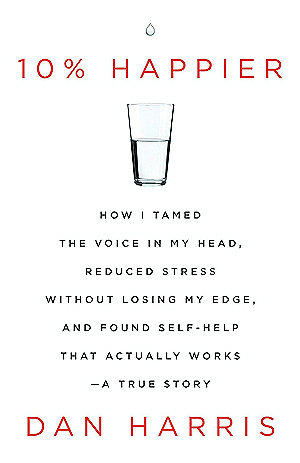
Another book I cannot really recommend. Listing here mostly for myself as not to forget. I read it and, yes, it is quite interesting as a story, but not much more. The book is like a memoir of one of the journalists who discovered his way to practicing mindfulness through his personal struggles of finding himself while building his career, reporting at war, craving for drugs (adrenalin, cocaine, whatever), and interviewing notable people, such as Dalai Lama. The only learning form this book is that celebrated people are often deceiving, they are hiding things and are driven by crazy things. The author didn’t motivate me to start meditating – I still think it is not gonna work for me. Somewhat fun read though, waste of time otherwise.
Speaking of deception:
The 48 Laws of Power

Let’s start with a disclaimer: I do NOT praise this book.
This book effectively teaches you how to deceive others and how to work your way to gain power the evil way. Wikipedia says it is a bestseller popular with prison inmates and celebrities. Description on goodread has this “This amoral, cunning, ruthless, and instructive book synthesizes the philosophies of Machiavelli, Sun Tzu, and Carl Von Clausewitz with the historical legacies of statesmen, warriors, seducers, and con men throughout the ages.”
If you want to understand how amoral this is read the quotes here: https://www.goodreads.com/author/quotes/865.Robert_Greene I don’t even want to repost them here.
Key learning: bad people exist and they could intentionally be manipulating you in psychopathic ways just to get what they want no matter what the price or method. It is good to be aware of such things and try to recognize and distinguish between people with genuinely good intentions and those who are evil. Never be a victim.
The subtle art of not Giving a F*ck
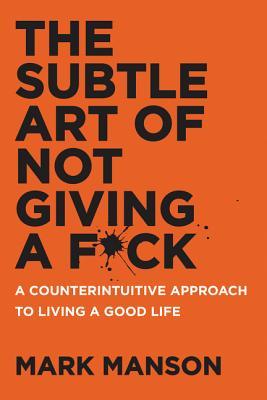
One thing that I like about this one is that the author says it is ok to not try being positive all the time. At times people are overplaying it and it is weird when they pretend to be happy. Acceptance of some of the negative experiences is a positive experience in itself.
The book is an easy and extremely entertaining read, especially if you are feeling a bit stressed and worry about too many things. Definite fun. Most of us like fun, so if you are going to read/listen to it do it mostly for that reason.
Algorithms to live by
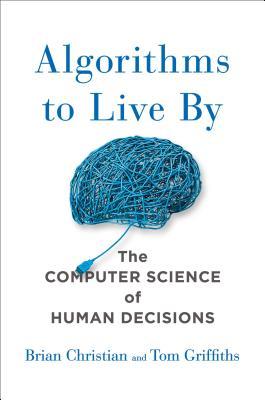
Fun book for software engineers on how you can incorporate computer algorithms into your everyday life. Just go and read. Super easy reading and wonderful way of spending your time.
Wondering how to sort your clothes and stuff in the most effective way? Like maybe sorting them by type? Nope. Wrong answer. The best way is to introduce Least Recently Used cache, making sure stuff you need the most often is always most accessible.
Go ahead and apply game theory towards making your decisions and design mechanisms for decisions instead of relying on good intentions.
Never split the difference
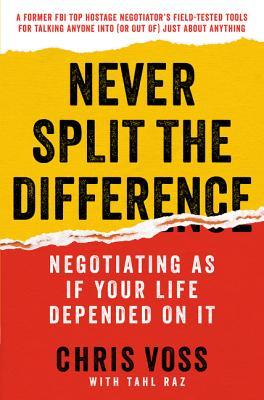
Ok, finally back to slightly more serious books, and I would go as far as to say that this book is a “must read” before your next job offer negation. The book is written by former FBI agent who worked as hostage negotiator.
It is also probably one of the most practically useful books for people who have office carriers like me and would like to apply negotiation techniques in almost any discussion. More often than not, “No” means “wait” or it means there is something the other side doesn’t want to reveal. Your job is to work through what the other side really wants.
Louder than words
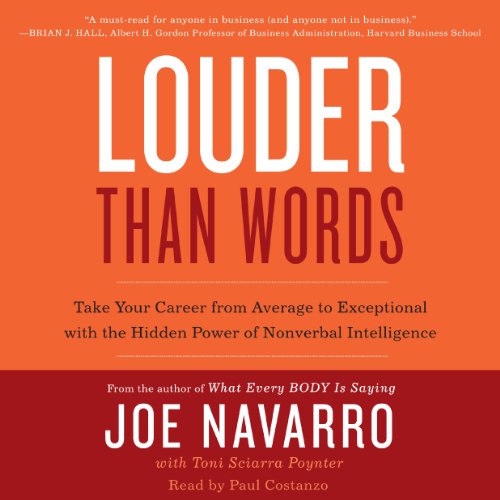
This is a book on nonverbal intelligence. I remember it being intriguing when listening to. We humans are very interested in knowing what others think. They say body language conveys 55% of communication. If this is true then we should benefit from learning to be better at understanding nonverbal messages.
Principles: Life and Work
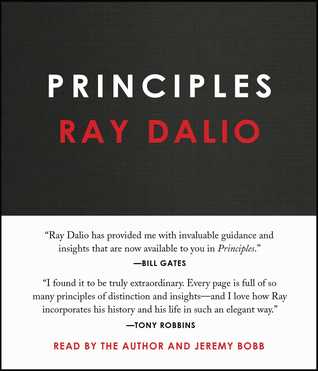
This is really good perspective on how you can structure your life and work around set of principles. I like the emphasis on always getting all the way to truth by overcoming your emotions, ego, and blind spots.
One of the great and unique notions introduced in the book is idea meritocracy that can be applied at workplace based on the following: radical truth – no filter on what you’re thinking, radical transparency – being super open for entire organization, thoughtful disagreement, believability-weighted decision making.
If you don’t have time for the book just want this great video on how economics works and then look at the principles for success videos. These two should be worth one hour of your leisure time. I really appreciate how Ray Dalio is trying to leave some legacy after him.
Extreme Ownership
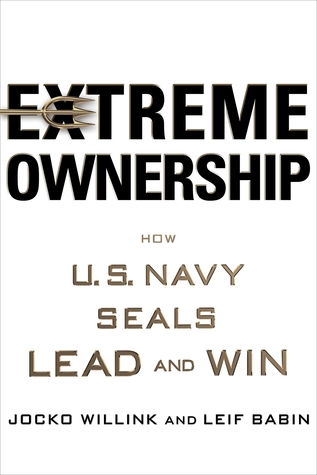
This book is written by former US Navy-Seals who fought in Iraq and in essence is partially memoir and partially book on leadership covering 12 principles towards becoming extreme owner and a real leader. The most memorable are the first and the last. The first one is extreme ownership: always take full responsibility for your own and your team’s results, never blame anyone.
Quote: “Implementing Extreme Ownership requires checking your ego and operating with a high degree of humility. Admitting mistakes, taking ownership, and developing a plan to overcome challenges are integral to any successful team.”
The last principle one is discipline equals freedom: conquer your weaknesses, procrastination since being disciplined means being fee. This brings us to another book:
The Power of Habit
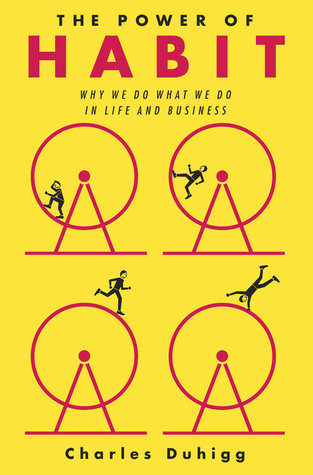
Key learning: most of our lives are structured on top of numerous habits and building right habits could propel you really far forward.
Habits have the following structure: Cue (stimuli) + Response (actions) => Reward (resulting sensations). To build a new habit you need to identify the response – which is the core of what you want to be doing, then you need to come up with cues that would repeat and eventually create craving (same timing, same location, same triggers), and then you need to make sure you get the reward or punishment. Once this is done: repeat-repeat-repeat and at one point you won’t be able to resist.
Quote: “Habits are most malleable when the Golden Rule of habit change is applied: If we keep the same cue and the same reward, a new routine can be inserted.”
Thinking Fast and Slow
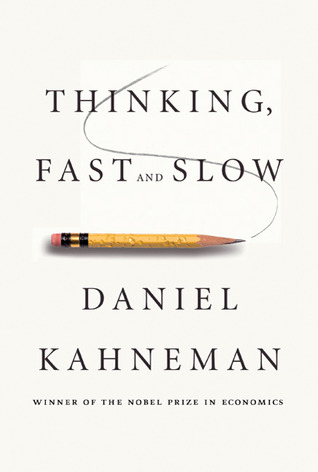
This one is written by Nobel price winner and is probably based on more research done by author himself than any other book in this list. Not an easy read. I definitely recommend the book, but probably don’t listen to it like I did. Get yourself kindle or paper version.
This is a book on how we think about things in realm of two systems: system 1 – fast processing, lazy, and emotional, automatic, and impulsive; system 2 – slow processing, rational, aware, conscious, and considerate. Although the author didn’t give these parallels I tend to think about system 1 as subconsciousness or based on subconsciousness and about system 2 as that of consciousness.
Default rule. Let me give you one example: I lived in Austria for some 6 years. Had I died in car incident I would have been donor of my organs, same is the case for 99% of drivers in Austria. Now, this number is only 12% in neighboring and culturally similar Germany. This is simply because Austria uses opt-out and Germany uses opt-in system when collecting consent. System 2 needs to put consideration in case of opt-in, while system 1 is happy to skip in case of opt-out.
Loss aversion. We are more afraid to loose something than we are eager on getting more of it. Authors provide numerous examples of loose/gain propositions with exactly same statistical outcomes and demonstrate how people choose option that sounds more safe. Unfortunately in real situations what sounds safer could be irrational and more often than not people actually make the wrong decisions. This is especially important when you make money decisions.
There are many other concepts introduced in the book all backed up by research, evaluation and phrases for remembering in the end of each chapter. Just going over all of these concepts is worth your time as it might help you make better decisions. I am considering rereading kindle version of the book after some time.
Conclusion
Personally I find this kind of books very fascinating and engaging as they provoke profound thoughts on our existence and provide guides towards enhancing our future well being.
Hopefully these short reviews are useful to you and will help you pick your next read.
Thank you.
Would be happy to receive quick recommendations on similar books in comments!
Does Your Software Developer’s CV look Professional?
October 11, 2015 Career, Success 2 comments
 A first glance look at your resume will rest assure a potential employer that you are not worth hiring if it looks like a crap.
A first glance look at your resume will rest assure a potential employer that you are not worth hiring if it looks like a crap.
Even if you listed tons of technologies, badly looking resume hints that you don’t care about the quality of things. Employer might think: “He must be writing his code in the same ugly way.”
In this blog post I want to share few things I did to my resume.
Actually, I have more of a CV than a resume. After recent changes I created two different versions of my CV. One is more concise two pages that I would normally use and another is extended 4 pages version. Four pages version contains detailed information on projects I worked on, so it can serve for my future editing, should I need more information.
Being Specific about Contributions and Achievements
Probably, the main thing anyone should do to their CVs is to ensure your future employer will have a clear idea on what you had done before. Obscure general phrases are just destroyers of a resume or CV.
For my own resume I completely rewrote everything into smarter format. I used past tense bullet-point sentences to clearly describe what I did. Let’s have a look at before and after of one concrete example.
Before
This is what I previously had as a summary for my experience at bwin.party company:
“Developing and extending large set of back-end services in scope of enterprise SOA architecture in large betting company. Scalability and performance were top most requirements.”
It was followed by a list of projects I worked on. One of them was statistics service I created. I described it like this:
“Service which fetches huge amount of statistics data from external provider over FTP and transforms it for internal consumption.”
Obviously potential employer looking at this description wouldn’t have any idea at what my contribution to this project was. Was I implementing it from scratch or was I fixing bugs? Or, maybe, I just know something about the system so I listed it.
After
After editing, the summary became:
“Bwin.party is an online betting company. I worked in the company’s sports branch, with a team responsible for backend services. Scalability and performance were the top most requirements. Most services were exposed through REST API; they had to be available 24/7 and withstand extreme loads during championship events.”
Then, I came up with this description for the statistics project:
“Designed, implemented, and launched a new sports statistics system. This system imported data from an external FTP location and made it available on our website through AppFabric Cache.”
This description exactly says what I did and even provides a glance look at some of the technologies used.
English
Another thing I had to improve was my writing. I’m not native English speaker and I’ve never took any English grammar classes. I make many mistakes.
I hired an editing and proofreading company to go through my CV and fix mistakes. I only paid 31 Euro, but my CV became English language error free. Plus they provided a few general suggestions on improving my CV.
You have to be really careful with someone editing your CV, as they might change the meaning unintentionally. For example, they wrote “Fixed a serious performance problem using search engine…” when it really had to be “Fixed a serious performance problem in the site’s search engine…”
There were obvious problems that made their way from times when my English was even weaker. For instance, sentence “I was awarded in nomination “Best Rookie Developer of 2008” in my team of 50 people, so am proud of this, because at that year our team got a lot of new people.” sounds horrible to me. Now it just says: “Was awarded the “Best Rookie Developer of 2008”.
Formatting
I completely changed the format of my CV. I’ve borrowed styling and formatting from my friend’s resume. He’s hired a professional technical writer to create a CV for him.
Before
Previous version was grey 4 pages wall of heavy text with odd formatting.

After
The new version is just two pages. It is nicely formatted and is error free. It is available here.
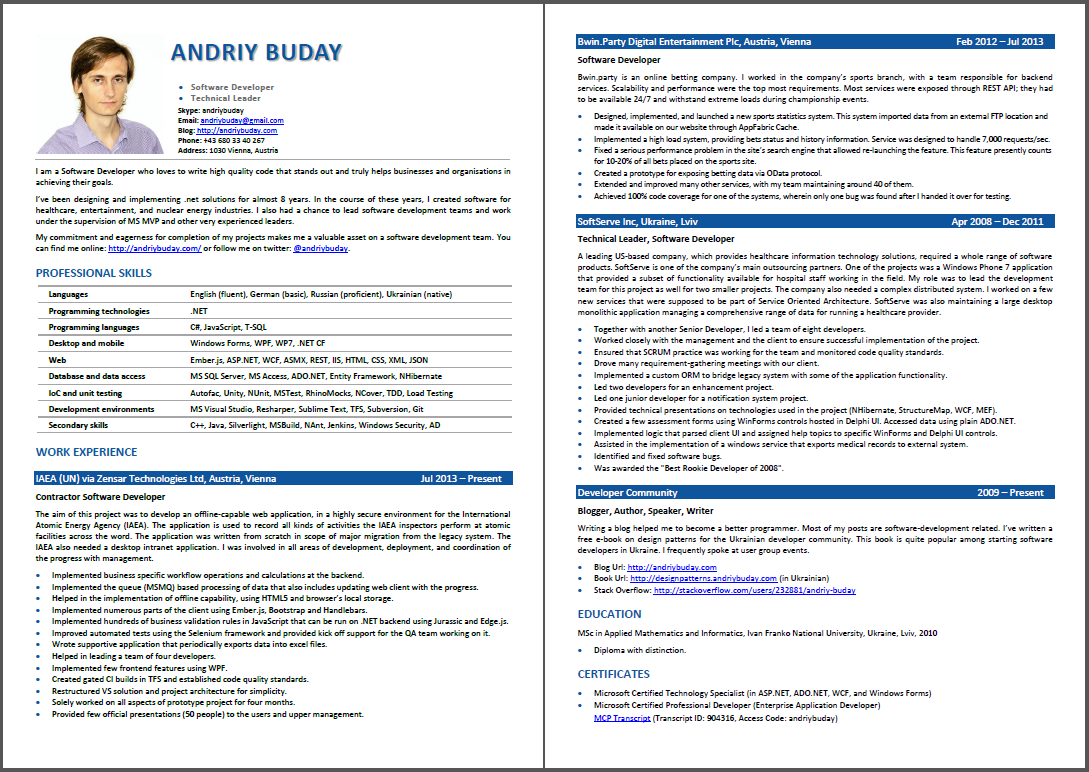
Review
It’s very important that someone reviews your CV. I asked my colleague who does a lot of interviews to review my CV. He said that if CV is short, screener reads through all job posts, but if it is long screening ends at your last job post. So it depends what you want to show. Other thing he thought of, was adding skill grades for different technologies, like C# (major skill), F# (minor skill). I didn’t incorporate this advice, but I’m still considering it.
Photo
I added a new photo to my CV, not the one you currently see. After I showed my CV to my wife, she said that she would never hire someone who looks that frowning and sad. I had to make a new picture with a hint of a smile.
Next Steps
Recommendation Letters
I already have official recommendation letters from two of my previous companies. I’m planning to include those when applying for a job. A recommendation letter for a software developer is not common in Ukraine where I had worked before moving to Austria. But here in Western-Central Europe it is almost a must. I think that it doesn’t do any harm to ask for an official recommendation letter even if it is not common in the country where you live. Ask for it now, otherwise it could be a difficulty to get it few years later.
Cover Letter
I’ve never used a cover letter. It has never came to me that this might be a useful technic. But it might, especially if you are looking for a specific job and want to outline exactly why you are the best match for it. Should I find my “job of dream” I might consider creating dedicated cover letter. For now, I won’t create one. Have you ever used a cover letter? Did it work for you?
Hiring a Professional Resume Writer
I haven’t done this. I also have mixed feelings about hiring someone to write my CV completely from scratch. Probably, they can do a great job. But finding a really worthy professional might take lot of time. Also a good one would cost you few hundreds $. Though, it is definitely a great investment, if you resume looks terrible at the moment.
Conclusion
My resume wasn’t looking good. It isn’t extraordinary great now, but I think I’ve improved it significantly. Main things I did to it, was rewriting it in more concise and descriptive manner, fixing mistakes by hiring a proofreading company, and changing the styling.
Hopefully, this post can be of some help to make your resume look better. I would be really happy to know if it helped.
If you have suggestions on further improvements to my CV, I would really appreciate it.
Update April 2016
There is more to having professionally looking CV / Resume. You should consider having market oriented resume versions.
For instance, described above two pages CV with a photo is common for EU, but it is not a great thing for US market.
In US it is more appropriate to have 1 page resume without any personal information.
As a result I created US oriented one page resume.
Book Review: Soft Skills: The software developer’s life manual
October 3, 2015 Book Reviews, Career, Success No comments
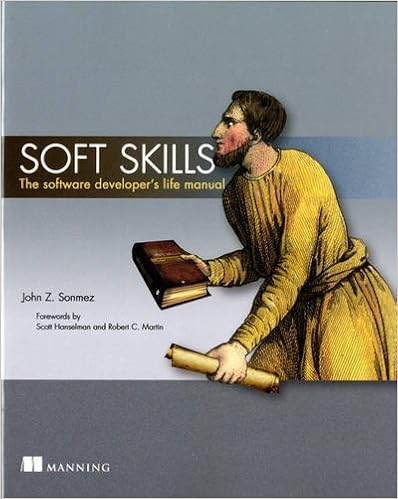 After going through short free blogging e-mail course by John Sonmez, I didn’t sign up for the marketing course. I was a bit sceptical about paying few hundreds for the course. But not to miss on the opportunity to learn from John I decided to read his book “Soft Skills”. (Actually I listened to it via Amazon Audible.) The book wasn’t exactly what I expected it to be – it was much more. It’s kind of a book I would like to write myself someday. The book isn’t just about soft skills needed to perform your everyday tasks at work, it is much more generic and broader in topics. The book is about skills you need to succeed in your life as a software developer. “Soft Skills” includes advise on career, productivity, finances and even fitness and nutrition.
After going through short free blogging e-mail course by John Sonmez, I didn’t sign up for the marketing course. I was a bit sceptical about paying few hundreds for the course. But not to miss on the opportunity to learn from John I decided to read his book “Soft Skills”. (Actually I listened to it via Amazon Audible.) The book wasn’t exactly what I expected it to be – it was much more. It’s kind of a book I would like to write myself someday. The book isn’t just about soft skills needed to perform your everyday tasks at work, it is much more generic and broader in topics. The book is about skills you need to succeed in your life as a software developer. “Soft Skills” includes advise on career, productivity, finances and even fitness and nutrition.
There is a lot of unique in the book, but probably you will find yourself familiar with some of the recommendations. For example, in one of the chapters on productivity John suggests using pomodoro technique. Obviously, it isn’t something new. But the author explains how to make it work and also adds few of his own practices. Everybody knows that their health is very important, but unfortunately too many of us neglect to do anything about it. I think emphasis this book does on fitness and health in general is something that makes the book special. Personally, I didn’t really enjoy some of the chapters on finances. Maybe that’s because I’m almost done with my goal of reading 13 books on finances and investing this year. But, still, I think that others might find it useful, plus it is interesting to know about the financial experience of the author himself.
My takeaways
I’ve certainly learned few concrete tricks and technics I’m going to use when searching for my next gig, like creating a resume that stands out, applying for a job, hacking the interview, negotiating effectively and other.
I will also apply some of the productivity recommendations at my current work.
A lot from the section on learning is very practical. Hopefully, concrete steps this section is offering will help me overcome some of the inefficiencies in my learning process. I have to admit that I often learn incorrectly. For example, frequently I first read a book and only then try things out. Intuitively it felt to be an inefficient way of learning, but I continued to do so.
The other big takeaway is health related. This year I started to run (well, again), but this is not enough to feel myself fit and full of energy. The problem is that I’m not consistent in my runs. I will add some scheduled fitness exercises to my runs and will try to follow John’s advise on the topic.
John has managed to retire at age of 33 and even I’m 5 years away from that age I have less aggressive target of retiring at 41. Best takeaway on the financial side was realising that I share same opinions on the matter and have already taken few of the first steps on the way to financial freedom.
Conclusion
“Soft Skills” is up to date book with very sensible, practical and actionable advice for any software developer. It has a potential to greatly improve your life – not just your career. I would highly recommend to read this book. I’ve even ordered a printed copy of the book as a gift for my friend for his birthday.
See the book on Amazon or buy it using my my referral link below.
Leaving my second job – it was time of new experiences and joy
June 27, 2013 Career 4 comments
*** NOTE/DISCLIMER: The opinions expressed herein are my own personal opinions and do not represent my current employer’s or any of its employee’s view in any way. I also won’t mention complete names of my colleagues or company names, you have to guess or just know ***
Today is my last day with my current employer. I worked for this company for almost 1.5 years. Not much, but during this time I worked with many great people and I gained unique experience. I just read my post on leaving my first job and I actually enjoyed the structure in which it was written. In this post I will express my thoughts and impressions of working for this company.
I BEFORE
In summer 2011 one of my former colleagues who had left SS years before me wrote a mail asking if I’m not interested to move to another country. He said that he remembered me as a good developer so he wanted to recommend me for a position in Austrian company where he worked at the time. Now he works for MS. Since I felt myself young and limitless I agreed. I had first interview over Skype. Not sure if I impressed interviewer, since I wasn’t strong in my Web skills, which has probably decided on the team to join. But seems that he liked me. Around that time I got married and we were heading for Europe for our honey week. Next interview was scheduled for the time when we planned to be in Vienna. This was the first time when the company saved money on me. This interview went much smoother and I’m sure I have impressed guys.
One of the most toughest questions was salary expectation. It is obvious that estimating salary expectation for living in another country you have no clear idea about is hard. Forums/government papers and reports help but not extremely much. I made my number and it fitted into company’s rage well since I got an offer with exactly that number.
BUT it definitely wasn’t the reason to move. I knew that cost of living in Western Europe is high and for money I got in Ukraine I can buy lots of goods. You know what? Higher cost usually means higher quality. This is absolutely true for Austria. But even this wasn’t complete portion of my decision. I guess primary reason was to try new experience and plus it was a time to change my learning curve as well.
II THE BEGINNING
Unfortunately it takes ages until Austrian government issues long term visa for 3rd world country. I had my interview in Summer, but started to work in Winter. I didn’t know what to expect in Austria and knew very little about the company I was joining. Whole move was very exciting time. Our parents had tears in their eyes while we were waiting for the flight. I understand them – it was not possible to know if we were going to return back or stay living there. It is still not known.
This time was very much different from anything I would have had if I stayed in Ukraine. Me and wife had great chance to travel across Europe and we have a daughter being born here. I anyway plan to have a blog post on how it is to be foreigner (developer) in Austria, thus wait for it. Now I will concentrate more on career.
On my first day I was assigned a bug in search engine. But since I didn’t have credentials to most of the systems and tools and I knew nothing about the domain I have fixed only 2 days later. Fix was one line change in the config. I remember how Sebu helped me right from the beginning. This was colleague support you can only dream about. Managers wanted to try me out, thus assigned a project with middle importance and priority. When I finished with it I remember none was really expecting it to work completely properly right away. But project itself turned out to be a success. This is how I proved myself to be reliable worker producing quality software.
And I started to enjoy it. Every piece of code I was assigned to write received lots of my attention. I cared for the code quality much. I even tried to have my code 100% UT covered.
III CORE
The company I joined is specialized in online entertainment, and I started in sports betting section of it. Biggest difference to what I had to do back in Ukraine is that this company is product company. We produce our own product and make money for ourselves. Team which I joined is responsible for developing/extending/maintaining whole bunch of services (maybe 40 or more) within enterprise SOA architecture.
It is pretty normal that there was room for learning when you start in new company. I definitely gained new experience in tools and the way how software is produced and deployed to production. Plus it was a move to more “webby” things for me. My team is doing production rollouts almost each weak. Millions people use our web site and we change something behind the scenes at the same time. Great.
I didn’t change my team for the entire time in the company and I don’t regret. I know that there were people who got tired or stopped enjoying their work or there was something they didn’t like. But I like the team very much. Every developer in the team is highly skilled and experienced.
Sergey, Sebastian and Simone are three developers from whom I gained the most knowledge and have taken something from them. Other developers Predrag, Lukasz, Alex, Raphael and Vladimir were very kind to me and it was pleasure to work with all of them. Some just joined the team, some left and for some big career journey just started.
For sure I improved my English, but there are two other languages I improved, like German and Russian. Before this company I never spoke Russian. But things turned in a way that I’ve significantly improved my verbal Russian skills in Austria. The most collaborative with me was Sergey. It was eye opening how frequently he has new ideas and knows about new features and tools. Thank you.
I would like to thank all developers with whom I worked and also our testing team. Without testers we wouldn’t be able to produce quality software.
It was also a pleasure to work with product owners, delivery managers and other departments of company.
Special memories will stay with me about the DB dev team. It was joy.
IV OTHER THINGS
I will definitely miss Friday lunch walks to Greek restaurant. It might be surprising but except of improving my dev skills I’ve learned how to play table soccer. Not that I play like a pro, not even comparable to guys who work here for years, but quite acceptable. I think you can even tell how many years person worked here when you look at his/her wuzzler skills.
Also I will miss this year’s action day and numerous parties throughout the year. I say I “will miss” since I will work in place where people probably don’t like parties, sport activities that much, but I have to try before claiming anything.
V THE END
If you read my post on leaving my previous job you will understand that I left not because of money or dissatisfaction but because of new experience and new opportunities. I’m very happy about my current team and satisfied with work I do. On the other hand things have changed for me. My daughter is now 18 (… Days!) and understanding that I will have to support her (and likely her sibling) changes the way I think about money.
Nearly 3 months ago I was contacted by some UK company looking for .NET developers for work here is Vienna. They titled e-mail with solid salary number, which was so attractive it would be silly not to try. First interview I had on the phone with some Indian interviewers. My questions on what this is about were somehow avoided. True conspiracy. But after they were much satisfied with my skills all the cards where turned. This company is just man in the middle connecting me with something big.
VI THE FUTURE
After some negotiations with man in the middle and and direct interviews at UN I was offered a job as a contractor. I’m officially starting my own business from 1 of July being registered here in Austria. I even have my own European VAT identification number. And can accept business opportunities from whoever I want. Well, not that I will have much time, but it is just nice to realize this.
I was in healthcare and then moved to gambling and now will dig into atomic energy. There is a rumor flying around about how depression it is to work for those guys and how it is difficult to change bureaucracy things. I see myself as a changing force aimed to make more things being done. And I’m looking forward to it!
It was great time to work for the Company.
I miss you all!
For me it is time to bet and I hope to win!
Book Review: “So Good They Can’t Ignore You: Why Skills Trump Passion in the Quest for Work You Love”
June 23, 2013 Book Reviews, Career, Success No comments
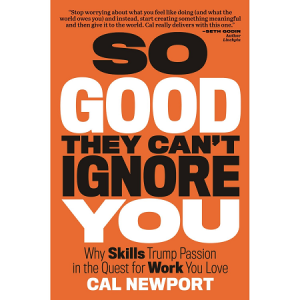 Recently one of my colleagues got so inspired by two books she read, so that she decided to simply start giving them away. She was guided by the “Pay it forward” concept, which “is asking the beneficiary of a good deed to repay it to others instead of to the original benefactor” as per wiki. Basically, if I like books she bought for me (hard copies) and if I like the concept I can continue buying books for other people, so they can spread the ideas and books even more.
Recently one of my colleagues got so inspired by two books she read, so that she decided to simply start giving them away. She was guided by the “Pay it forward” concept, which “is asking the beneficiary of a good deed to repay it to others instead of to the original benefactor” as per wiki. Basically, if I like books she bought for me (hard copies) and if I like the concept I can continue buying books for other people, so they can spread the ideas and books even more.“Be so good they can’t ignore you” is a quote from comedian Steve Martin that captures what is needed to build a working life you love.
“ The career capital theory of great work […] provides the foundation for all of the ideas that follow it in this book. It claims that the key to work you love is not to follow your passion, but instead to get good at something rare and valuable, and then cash in the “career capital” this generates to acquire the traits that define great jobs. This requires that you approach work with a craftsman mindset and not a passion mindset. ”
Book Review: “Being Geek: The Software Developer’s Career Handbook”
November 21, 2012 Book Reviews, Career 3 comments
Never heard of such book? Don’t panic, I’m here to help you understand if it worth your time or not.
So, last week I read “Being Geek” in hope that it will energize me and give some additional inspiration, which I’m lacking it in my new job, but this is topic for separate post.
I’m not completely sure if I’m any kind of geek, but the book describes people who share many similar habits to those I have and very likely many other developers have as well.
Michael takes you though one reincarnation of your gig from the beginning, when you are just passing an interview until the end, when you are considering to leave. He provides you with lot of hints and tips for any stage of your career, whenever it is negotiating of your salary, creating quality code or leading others.
I’m lucky that I’ve never heard about author’s blog “Rands in Repose” before, because otherwise I would not reap anything new accordingly to reviews on Amazon. I read this book in quick pace, as I usually like short essays talking about our developer’s job. I think that book has increased by baggage of understanding how developers see their profession, how real management should look like, and what are interactions between different types of people in software organization.
Author definitely has much more management experience than average developer has therefore his story is shifted towards company’s core – employees and their interaction. He helps to understand how organizations operate on higher level. I think that this is exactly what I’ve grasped from the book, and what you can also take for yourself.
Do I recommend the book? – Well, if you don’t read Lopp’s blog and if you like career and software craftsmanship books and if you don’t have any other higher priority books in mind, then yes. :)
Just about to start with programming as first job?
December 12, 2011 Career 3 comments
Recently I’ve got e-mail from guy, looking for some advice. At glance it sounds like he is worrying about finding his first job as software developer and willing to get some hints/advices.
First of all I would like to thank very much to those people who read my blog posts and who comment or send me e-mails. This is the best feedback I can get and it is the only true measurement of blog’s success.
So, I’ve got this well-written e-mail from student (I guess):
Hi Andriy,
Hope you are doing well. My name is Wes, I just read your articles, I have to say, I am your fan now.. Guys like you make a difference.
I am writing to you because I have the similar passion for programming as you, and that is why I went for my bachelors in Software Engineering, and while in school, I learned many languages like C, C++, Java, VB.NET and ASP.NET.
Out of all, .NET excites me the most. But now when I am about to graduate, I dont really feel good about my programming skills, and getting a job.. The best I have done in VB is made a calculator, made connections to the database, and executed some queries.
What I want from you, is some tips about what my approach should be at this point AND are their any sample projects that you recommend I should do, that will help me learn more and expose me to different sides of the programming world..
I would highly appreciate, if you write back, and I am sure you will.
Thanks – and good luck with your career!
Cheers!
Wes
I’m replying publicly, so I can share with other’s who have similar questions. Wes is not mentioning his last name so you won’t identify him :). Anyway I think that this e-mail is good one and it raises good questions. Starting from now “you” means either Wes or any other starting programming guy looking for some advices.
First of all seeking for personal improvement is great step towards it. I think that once you have clear goal and passion about it you won’t waste your time and life.
I just came across small e-book where found great answer for you from Karl Seguin:
“… If you’re willing to take the time and try it out, you will see the progress. Pick a simple project for yourself and spend a weekend building it using new tools and principles (just pick one or two at a time). Most importantly, if you aren’t having fun, don’t do it. And if you have the opportunity to learn from a mentor or a project, take it – even if you learn more from the mistakes than the successes.”
So I will expend this thought a little bit further.
You would need to write many projects – the more the better. Keep your hands dirty and work with the code, every other day you should feel that code, you wrote yesterday is crap and you can write it better today. If you are still student in Software Engineering be sure that you are fulfilling you time with programming. If you feel that learning courses are not supplying enough tasks for you, just create them for yourself.
I know that when being a student it is very interesting to take part in some sport programming competitions. So do it. You can also take part in some online competitions like Algorithm competitions at TopCoder. Those can be for your gym.
Definitely you need big projects to work on as well. These projects should take from couple days to couple of weeks. Write your own “paint”, not comprehensive one, but at least with basic functionality. Write your own money accounting system with your database, so you learn all basics of data access. You then can change data access from simple ADO.NET to ORM (try Entity Framework or NHibernate), you then can try to explore non-relational databases, like NoSQL. Do some web programming, if you did ASP.NET you can explore MVC ASP.NET. Explore mobile development by just writing same simple calculator for Windows Phone 7. You will get familiar with some Silverlight/XAML. If you are excited about .NET make sure you know C# (personally I cannot understand why Microsoft promotes VB that much, trend is C#).
Find your peers interested in programming. Learn programming in fun way, enjoy it.
Whatever you do, make sure that google in your force.
You will need to learn continuously. Read many books, but know that human forgets 90% of things heard, 60% seen & only 10% of things done. So if you read, but not try things read your time can be wasted. I have another blog post where I propose some tips on how to become successful developer, read those.
As of job. Ask older peers what are opportunities in your location. Visit software companies near you, ask them if they have some learning courses, which skills are in demand for that company. I ensure you, this is not as much difficult as you might be expecting. Also here is my article about career plan for software engineer. Probably it is too early for you to think deeply about career before you actually started as developer, but at least make sure you know how your future job might look like.
So key things:
-
Always do some programming accordingly to trends and your mood
-
Continuously learn
-
Know local companies, trends and demands
Hope I have been of some help for you, Wes and Dear Reader.
Leaving my first job – it was awesome time
November 15, 2011 Career 17 comments
I BEFORE
II THE BEGINNING
III CONTINUATION
IV NEAR THE END
V THE END
VI THE FUTURE
Interview. Job of dream. Cheese, money and happiness?
October 17, 2010 Career, Opinion, Success No comments
Job and happiness
Cheese
Money table
| You can put as Deposit | MDeposit (e.g. 10000) | -be honest | |
| You need per day | PerDay (e.g. 100) | PerMonth=PerDay*30 | -calculated |
| Per day to be happy | PerDayHappy (e.g. 500) | PayMonthHappy=PerDayHappy*30 | -up to you |
| Ave. bank interest | InterestRate (e.g. 0.12) | MInterest=YouHave*InterestRate/12 | -depends on banks |
| You are safe: | YouAreSafe=PerMonth*6 | YouHave > YouAreSafe ? (“you are more or less in good situation”) : (“Hey man, do you think about the future?”) | -if you do not have enough to live half a year, something is definitely bad with your budget |
| You can live without need to work | YouHaveEnough=PerMonth*12/InterestRate | YouHave > YouHaveEnough ? (“you can stop working without impact on your life”) : (“it is too hard to reach this since needs often increase ”) | months you have to wait to reach this goal:(YouHaveEnough-YouHave)/(MDeposit+MInterest) |
| You are free, or even rich | YouHappy=PerMonthHappy*12/InterestRate | YouHave > YouHappy ? (“hey! you are rich”):(“almost none reach this, since they start spending too much when they have enough”) | months you have to wait to reach this goal: (YouHappy-YouHave)/(MDeposit+MInterest) |
What do I recommend to help you find out if some job is for you?
Job of my dream
Questions:
- What do you like about working for the X company? Why should I like it as well?
- What is the overall goal of the project I will be working on?
- Is project new? What are terms and team size?
- What are my duties for this project? In percents?
- What are the most challenging aspects of this position?
- What technologies will be used?
- Do you use recent approaches in software development?
- How to you measure code quality? Unit Testing? Code Coverage? BDD?
- Would it be possible to see piece of already written code?
- What methodologies are used for this project?
- With whom will I be working most closely? What is their professional level?
- Who is my supervisor? To whom would I report?
- Will I supervise someone?
- Are you interested in my professional development and how will this appear?
- Do you invest in refactoring/research?
- Do you accept initiative from your employees?
- Will I have many meetings per day?
- Is there anything else that prevents you from hiring me?
Also I was looking for some other good lists of questions. One is more general and other is awesome list of questions from stackoverflow.
Awesome questions list from stackoverflow
Here below in dark-blue is complete list of questions composed by Rob Wells on stackoverflow. This is copy-paste (!). All rights are reserved for stackoverflow and I do not pretend to be author of any part of it. Please follow this link to see original question.
Questions for development:
- What software development methodology do you use, e.g. Waterfall, Agile, Scrum, XP?
- Is training provided for the methodology being used?
- What parts of the software development life cycle do developers do?
- What is the breakdown of a developer’s day, e.g. how much time for support or troubleshooting, how much time for coding, analysing requirements, etc.?
- How long does your design, code and test cycle last? Less than thirty seconds, less than five minutes, less than ten minutes, etc.
- Do you encourage refactoring if sufficient unit tests exist?
- What test bench do you use?
- Do you have coding standards?
- Are the standards revisited or are they just left, as written, i.e. “carved in stone”, in 2001?
- Do you allow time for peer reviews of code?
- Can you give me an example of a code review that is done here. Are there different levels of a review, e.g. new system is handled in a day long explanation compared to a quick bug fix that is needed ASAP.
- Does the project use continuous integration?
- (If they use continuous integration) does your software build and test cleanly right now? What’s the current successful build rate?
- Does the project have regular regression testing?
- Are metrics kept for the code base? SLOC? Numbers of unit tests? Numbers of regression tests?
- How are conflicts resolved between testers and developers? I ask this because there have been times in the past where I see finger pointing of “Well, I interpreted it this way and he interpreted that,” enough to make me ask how is this handled.
- How are requests for large changes to be done quickly handled? For example, someone requests a web application that would normally take 2 weeks be done in 2 days for a prospective client that could be a big account.
- Do you use a software repository? (If the answer is no, walk out).
- What is the budget for tools?
- Do you offer your developers any sort of allowance to order technical books?
Questions about estimating:
- Do you have a standard template for estimating development effort for new work to make sure nothing is overlooked?
- A process for obtaining such an estimate?
- What percentage of contingency do you build in to your estimates?
- Do you allow time to revisit
Questions regarding the team:
- What has the team achieved so far?
- What has the team learnt?
- What aspects of the team would you like to change to improve the team?
- What’s the team spirit like?
- Where do team members generally have lunch?
- Does the team go out together every now and then?
- Do you encourage team members to give presentations to improve their abilities?
- Do you do the same with writing?
- Can I please speak informally to some of the people in the team I’ll be joining? (Useful to get beyond the management BS and get a feel for the real deal.)
Questions regarding personnel type policies:
- Does the company have a training policy?
- What were the latest courses that the company sent people on?
- Does the company have a mentoring policy?
- What kind of feedback mechanism is there for determining employee performance, e.g. how often is my work evaluated and suggestions given on where to improve?
- Is there a dress code? Do employees work a fixed set of hours?
- Is there any on-call time as part of the job?
- Do you encourage employees to set goals and provide incentives to meet those goals?
- Is self-improvement a value common to this organization?
- What’s your company’s Internet policy?
- What sites do you block? (I’ve worked at places where you can’t access various good technical sites.)
- Can I work irregular hours if I need to? For examle, at night, all the week’s hours in 2 days?
- Can I work from home?
- Do you have any policies against employees listening music while they work?
- How much work do you expect developers do outside of the normal business day?
Questions about management:
For the manager:
- What is your style of managing?
- How s/he motivates people
- How problems are handled (I leave that open-ended to see what sort of problem they assume–relating to those under them or those over them or issues unrelated to people at all, and then ask about whichever they didn’t cover).
- What the company does to help develop their managment skills
- What motivates them
- How much they work (typical hours/schedule)
- What accomplishment they are most proud of (I don’t specify work-related, and if they mention something besides that I ask about work as well)
- How they develop team cohesiveness and what they’ve been able to accomplish in that area
- What they see as the next big step for the team, for the company, and in dealing with projects or whatever the main mission of the group is
Then I ask them to answer the same kinds of questions for the company as a whole, explaining that I consider there’s such a thing as a company “personality” that usually emanates from the top. I ask how that has changed over the years (if they’ve been there very long).
Further questions on management:
- What’s your staff turnover rate?
- What’s the worst project you’ve ever been on here?
- How long does the typical hiree at my level stay with the company?
- How are projects categorized, e.g. changes compared to a small project compared to a big project?
- What kind of management is there within the company, e.g. is the development manager also the project manager or are these separate people usually?
Questions on the work environment:
- Can I please see my workplace?
- And, more specifically, can I see the desk where I will be working please?
- What’s the company’s policy to downloading software? (I’ve worked at places where you can download zip so it takes a week to get the help team to download the hex editor you needed yesterday.)
- How locked down are the PC’s? (I’ve worked at companies where the PC’s are so locked down it’s almost impossible to do any work e.g. no access to command prompt.)
- Do developers have admin rights on their PC’s? (Rule of thumb – The more locked down the PC, the worse the company. The real development sites I’ve worked at give all developers admin rights. They trust and empower them with corresponding rises in productivity.)
- What software is loaded by default on a standard developer PC? For example, can I use Eclipse or am I condemned to Notepad hell).
- Can I choose my own development tools?
- What sort of equipment do you provide to your developers? For example, are all developers given a laptop to work with, do they have access to two monitors, are they allowed to order other equipment (e.g. ergonomic keyboard)?
Miscellaneous questions:
- Why did the guy I’m replacing leave?
- How can I help you?
- What are your biggest needs right now?
- What kind of things would you want someone in this position to do?
- If you choose me, are there things I could read about your problem domain that would help me be effective on day one?
- Why the interviewer(s) work(s) there (or likes working there, or continutes to work there, etc). Their responses usually give me a good feel for the company.
Hope you liked this blog post. Looking forward to hear from you guys!
Career Plan For Software Engineer. Do You Have One?
August 24, 2010 Career, Success 21 comments
I’m confident that every smart human should have a plan for life, part of which is a career plan. Most of us spend more than half of our lives working. Did you ever think about that? We spend hours working on some projects, solving some problems, interacting with colleagues, creating and modifying things. Are you dedicated to what you do? If no, I have a question for you: Why do you work on xyz? Really! You may say that you could possibly work with more pleasure on another job. If that is your answer, why don’t you plan to change your job?
If you are dedicated to your work, I would assume you want to grow. Right? Do you have an idea on how you should proceed to reach your goals? Do you know exact steps to take and your knowledge gaps to overcome? No? How then can you be sure that you will grow to more respectful position, a position in which you are recognized and admired?
I always ask people about what motivates them and what they would recommend me to do to motivate others. Answers I get are different in formulation, but they all have the same core elements behind: possibility of career growth, recognizing, achievements, possibility to chief. Main question to you is this:
What do you do to reach your professional and life goals? Do you have a plan?
If you are not sure about what you do or what you should do, it is exact time to build your career plan.
Career plan
Career plan is list of positions and actions you should take in time to reach your short- and long-term career goals.
How to build your career plan?
First of all, building a plan is a great exercise and a process of establishing steps you should perform. The process itself allows you to have a critical view on your current career situation. You should know where you are right now, where you want to be and what are your abilities/skills. Answers for those questions are prerequisites for building a good career plan. If you have no clear vision on where you want to be, don’t be upset. Work on that. Try to write a few words that describe you after you as if you already reached your goals. How you see yourself in future might change, but at least you have some kick-off list. For me the list is something like “MVP, Consultant, Architect, Author, Community developer”. Also thinking out loud: “own company, another country, being manager, etc”
After you have some preliminary plan, you can refine it by removing less important items and by adding some additional ones. Also you can rethink some things and then rethink again and rethink few more times. In the end you will have some kind of more or less good plan. But do not expect it to be you final plan. I would say that you should always take a look on it and consider if anything requires improving.
Benefits of having a career plan
- Clear vision of the path you want to take.
- Possibility to track your progress to avoid getting stuck.
- Something you can use when you are trying to establish your life priorities.
- A way to communicate with your management on your career and get feedback.
- Extra confidence in your life.
You are now different!
After creating your personal career plan you will be different from your co-workers, who just continue to work blindly. There are people who work just to get enough money for a living. This cannot be considered as success, clearly not for me and hopefully not for you. Some other people probably think that simply working hard will lead them to success. Hey guys, just don’t think so! Yes, you are right that hard work is needed and respected, but there are definitely other things you have to add to bake a cake!
Once you have established where you want to be it is time to understand the path.
The Path
Positions path
Normally positions for Software Engineer start with these three:
- Junior Developer
- Intermediate Developer
- Senior Developer
This is the most general part of a path I see in all software companies. What do we have after that? It really deviates from company to company, but generally speaking this depends on the factor of your interaction with other people, with technology and with the company.
The more you interact with people the more you become leader of team, say Team/Tech Leader. The term might differ, but I like the “Technical Team Leader” one. Even more, if you would like to take more responsibilities you can switch to managing positions and become a Project Manager right after being Tech Leader or Senior Developer.
The less you interact with people the more you become an expert (it is even possible to have such position officially in tech industry). Expert is the person with whom others consult and get advise from.
The more you interact with a company the more you become CEO, but depending on your company’s size you might have few more steps here. Of course, position’s title can differ as you climb the career ladder.
Summarizing, your further steps are in one of the following areas:
- Technical Team Leader – a balanced position that has something from technical and management worlds
- Expert – way to consulting and architect positions
- CEO – way to management positions and eventually CEO
Goals in the Path
Why did I say “positions path”? Because this is not whole representation of the path. A good path should also go through you own personal ambitions related to your job to lead you to the established goals. What do I mean by this? Since I want to be recognizable community developer and known over the world, I should commit a lot of efforts in maintaining this blog, in speaking at events, etc. This has no explicit impact on my career growth, but believe me it has huge and tremendous indirect impact. Also, I would love to write a book and I’m planning on it. I still do not have a clear idea on what that book will be about. I only imagine something either on tech or on success. What matters is that I’ve planned it and I’m proud of it. Some remark goes here. I mentioned about this to my friend and he was laughing at me because I want to write a book and planned it but I do not know what about. I can express my arguments against it here, but would love to hear from you. [Edit 2015-Sep-16: I’ve released a free e-book on design patterns in my native language in 2012.]
My personalized “Developer’s RoadMap to Success”
My company as one of the leading outsourcing companies in Ukraine is trying to make employees happier with helping them in their careers. They create more positions and they also establish processes that allow employees see where they can move. (I hear you scepticism here…)
It is well known that one of the biggest motivation engines is visibility of a career growth. Since I’m considered to be a perspective employee (at least my employer thinks so), me with my company almost finished building my personalized Career Plan. It is the path with steps I should take to move from one position to another.
Of course, the company doesn’t care about my non-career goals even if they are dedicated to my personal improvement. It is the reason why the company has only included official positions in my career path. Highest position they’ve planned for me is to be one of the tech chiefs of one of the divisions. Highest position means a lot of interaction with clients and huge responsibilities in developing and advising on solutions. But it doesn’t include any of my desires to become community developer and stuff I would like to do to achieve my other goals.
So here I will present my own Personal Career Plan that also includes a lot of other things. I would recommend you to build something similar. On the left you can see path I built combined with some positions, certificates (officially needed for those positions). On the right side you can see my table of “Where do I want to be in a year“. List of “where I want to be” is really powerful tool if you keep doing it year after year. (here is list for 2010 & here is list for 2011) [Edit 2015-Sep-16: To see complete list of year plans click here.]
You must be thinking now: “Boy, hold-on, hold-on! It is way too optimistic path. Are you kidding?“. I would answer “Shut-up! I know my path and will do my best to stick to it. And, btw, where is your plan?”
Even I realize there is some overestimation of my possibilities/skills/efforts I would love think I can do all of this. Thinking in such a way is movement to The Success!
[Edited 2011-Jan-10: grammar fixed and few links added]
[Edited 2016-Jan-20: some grammar fixed]
2016 Follow Up?
As this post receives a lot of traffic, I decided to fix some grammar. I’m not changing the story though. I want to keep it the same so I can compare my old plan with my current achievements. Probably it is something you would like to know as well. Therefore I’m planning to write a follow up post in coming months.
2021 Update
Just for fun, here is my 2021 career update: I’m a Senior Software Engineer at Google working in Vancouver, Canada. Before Google I worked for Amazon as SDE3. I don’t know if this is an indication of any success or progress. I definitely had greater plans for myself in 2010. My ambitions subsided significantly and I tend to appreciate diversity of life much more than before. I feel like I probably need a new plan.
